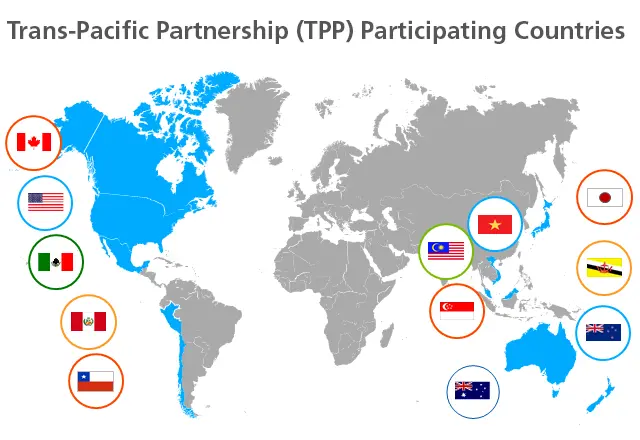As President Luis Lacalle Pou’s term nears its end, Uruguay intensifies its interest in joining the Trans-Pacific Partnership (CPTPP).
The CPTPP is a trade agreement among several Pacific Rim countries designed to lower barriers and promote economic growth.
Positive signals have come from existing members, uplifting Uruguay’s hopes.
Trade openness has been a tough issue for Uruguay’s current government. Talks with the EU and China are stalling.
Now, Uruguay sees the CPTPP as a more promising option. The application process is moving along.
Vice Foreign Minister Nicolás Albertoni leads the CPTPP talks. He has met with member countries like Chile, Peru, and Japan officials.
The CPTPP’s terms are set, making the process straightforward. There’s no room for negotiation.
Uruguay faces competition for CPTPP membership. The UK, China, Taiwan, Ecuador, and Costa Rica are also in line.

But Uruguay’s government is hopeful. They believe their strategic location and small economy could help.
Japan and Australia have already responded positively. Japan praises Uruguay’s active interest. Australian legislators also show a willingness to trade with Uruguay.
Local exporters are waiting for good news. This move aligns with the government’s commitment to open up trade.
Quick Analysis
Uruguay’s focus on the CPTPP is a shift in its foreign policy. Before, it relied heavily on regional groups like Mercosur. Now, the country is looking to diversify its trade.
Joining the CPTPP fits well with President Pou’s broader reforms. It aims to boost Uruguay’s global competitiveness. The CPTPP could open new markets, especially in Asia.
But this new focus comes with a cost. Uruguay’s interest in the CPTPP strains relations with Mercosur countries. How this will affect future cooperation is unclear.
Also, Uruguay will have to meet the CPTPP’s standards. This could mean changing laws at home. Whether these changes will get support in a divided political landscape is a big question.

